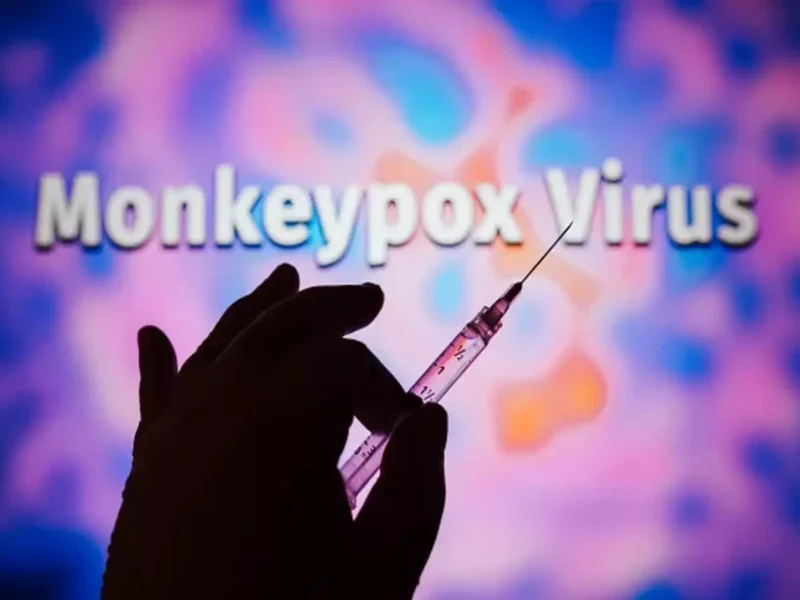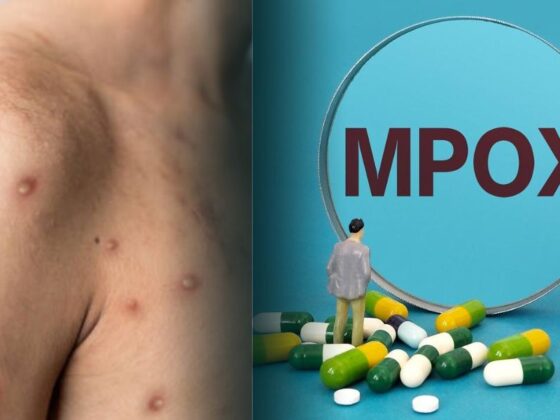New Delhi, September 26: The global landscape of the Mpox virus continues to evolve, with the emergence of a new variant, Clade 1, raising significant concerns among public health experts. This highly infectious strain has been identified in several regions worldwide, prompting heightened surveillance and preventive measures.
Understanding Mpox Clade 1B
Mpox Clade 1 is a genetic lineage of the Mpox virus that differs from the previously dominant Clade 2. It is characterized by a unique set of mutations that may confer increased transmissibility or virulence. While studies are ongoing to fully understand the specific implications of these mutations, early data suggest that Clade 1 may pose a greater public health threat.
One of the primary concerns with Mpox Clade 1 is its potential for increased transmissibility. Preliminary evidence indicates that this variant may spread more easily from person to person compared to earlier strains. This could lead to larger outbreaks and more rapid dissemination of the virus within communities.
How Dangerous Is This Variant?
While there is no definitive evidence that Mpox Clade 1 causes more severe illness than previous strains, it is important to remain vigilant. The severity of Mpox infections can vary, and factors such as age, underlying health conditions, and vaccination status can influence the course of the disease.
What Is The Treatment For Clade 1B Mpox?
The symptoms of mpox can range from a few spots to a severe rash and illness. Treatment will depend upon the individual patient’s needs but may include admission to a specialist hospital.
New-born babies, children, people who are pregnant and people with underlying immune deficiencies may be at higher risk of more serious mpox disease and death.
Is The Vaccine Effective?
UK and global evidence from the mpox clade II outbreak in 2022-23 suggests that the currently available vaccine is effective if given to individuals before they are exposed to the infection (approximately 70% to 85%, with the majority of the protection provided by the first dose) with more limited protection if given after exposure (~20% effective). The vaccine is expected to work as well for clade I mpox as for clade II.
How Can We Protect Ourselves From Mpox?
To mitigate the impact of Mpox Clade 1, public health authorities are urging individuals to take the following precautions:
1. Vaccination: Getting vaccinated against Mpox is a crucial step in preventing severe illness and reducing the risk of transmission.
2. Safe Sexual Practices: Practice safe sexual practices, including using condoms and limiting the number of sexual partners.
3. Avoid Close Contact: Avoid close contact with individuals who are sick or have a rash.
4. Hygiene: Maintain good hand hygiene by washing your hands frequently with soap and water or using hand sanitizer.
5. Surveillance: Strengthen surveillance systems to monitor the spread of Mpox Clade 1 and identify emerging trends.
Anyone can catch mpox clade 1B, so if you have recently travelled to an affected country, be aware of the symptoms. If you think you might have the infection, avoid close contact with other people, self-isolate at home and speak to a healthcare professional as soon as possible.
The World Health Organization (WHO) declared a public health emergency of international concern because of the rapid spread of a mpox virus strain, clade I, after its emergence in the Democratic Republic of the Congo (DRC) last year, and the potential for the virus to spread further across countries in Africa and outside the continent.











